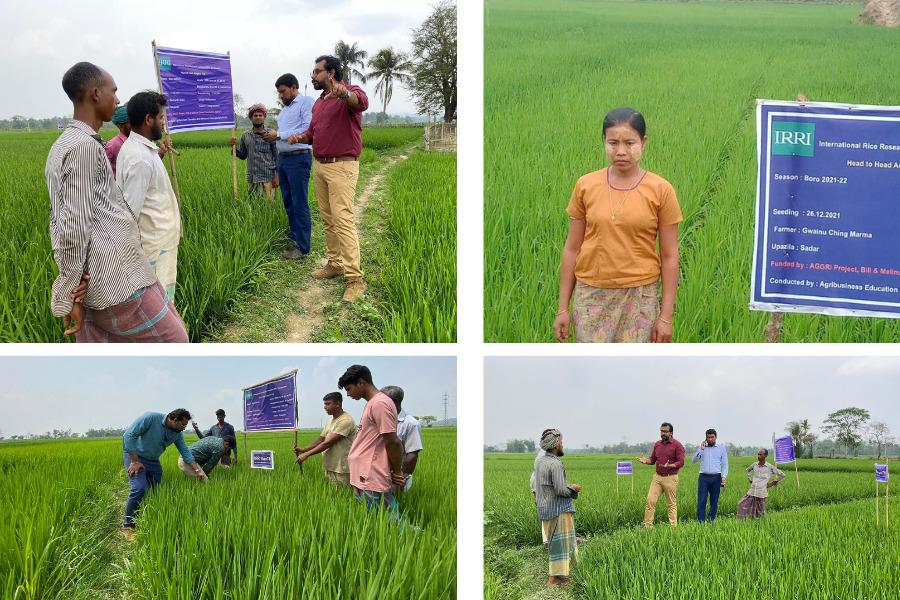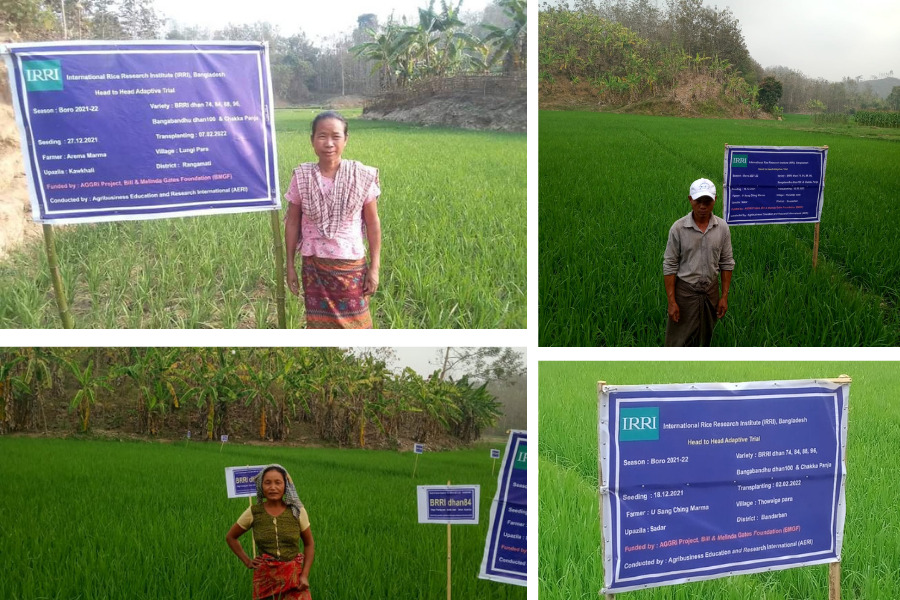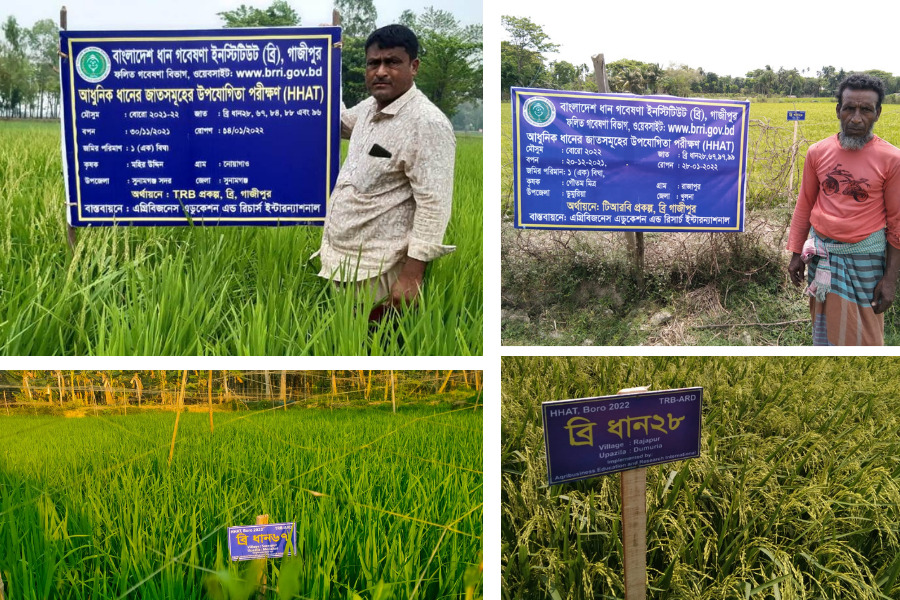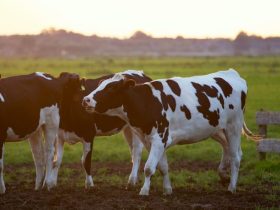IRRI and BRRI continuously work together to ensure food security through Hybrid rice adoption by Farmers
Food security is a serious challenge in Bangladesh, which is predominantly an agrarian economy with a high population density. Agriculture is a vital component of Bangladesh’s rural employment and revenue generation and is thus regarded as a lifeline for the country’s economy. IRRI and BRRI continuously work together to ensure food security through Hybrid rice adoption by Farmers.
In terms of consumption, output, and geographical coverage, rice is Bangladesh’s most important food crop. The crop sub-sector dominates the agricultural sector, accounting for 14.3% of GDP, with rice accounting for around 53% of it. Rice accounts for more than 80% of the entire food supply.
The potential for increasing hybrid rice acceptance is considerable. The Government of Bangladesh has the chance to improve policy guidelines covering the following areas once it is informed about the existing condition of hybrid rice: first, to build or strengthen essential interrelationships and/or linkages among stakeholders such as the Department of Agricultural Extension (DAE), the Bangladesh Rice Research Institute (BRRI), and the Department of Agriculture (DAE).
For more than five decades, Bangladesh and IRRI have collaborated. IRRI’s first foreign outreach project was in Bangladesh. In 1965, 303 rice cultivars were tested at the Savar Farm, a government-run dairy venture west of Dhaka. In 1967, the first extensively distributed, high-yielding semidwarf rice variety, IR8, was introduced into the country.
According to the International Rice Research Institute, the country’s rice production has increased 3.6 times in the last five decades, from 15 million tonnes in 1971 to 54 million tonnes in 2019, making it the world’s fourth-largest.
Because of major government investments in research, farming methods, and incentives, Bangladesh has achieved cereal self-sufficiency.
In the spread of hybrid rice, the Bangladesh Agricultural Development Corporation (BADC), seed producers, dealers, and farmers are all involved. Second, after determining the state of varietal information, the relevant authorities may investigate the challenges farmers encounter when producing their variety. Finally, by suggesting the appropriate hybrid rice variety, the authority can have a substantial impact on hybrid rice farming. As a result, field extension staff, particularly Sub Assistant Agriculture Officers (SAAO), may be able to assist farmers in selecting the appropriate variety and following the recommended technique.
To meet the expanding population’s food needs, modern cultivars must be adopted for cultivation. Rice growers’ adoption decisions will be aided by the availability of high-quality seeds and region-specific cultivars.
Education, marginal and small farm size, training, distance to the local market, price volatility, taste, number of varieties cultivated, and yield variation are all factors that positively and significantly influence the adoption of BRRI cultivars.
Bangabandhu Sheikh Mujibur Rahman Science and Technology University, IRRI and AERI Head to Head Adaptive Trial (HHAT) implementation:
Agribusiness Education and Research International(AERI) conducted a “Head to Head Adaptive Trial (HHAT) of Modern Rice Varieties (IRRI-BRRI Protocol)” at Bangabandhu Sheikh Mujibur Rahman Science and Technology University in Bangladesh during the Boro 2021-2022 season.
Under the Accelerated Genetic Gain in Rice (AGGRi) initiative, Bangabandhu Sheikh Mujibur Rahman Science and Technology University partners with the International Rice Research Institute (IRRI) to undertake HHAT. The project’s goals include gathering reliable data and verifying the suitability of modern, high-yielding, promising rice varieties in various parts of the country; comparing popular varieties with candidate products; selecting suitable varieties for specific regions; rapid expansion of candidate products in the field level; and gathering farmers’ feedback on cultivable varieties and taking appropriate steps. Dr. Zilhas Ahmed Jewel, an assistant professor in the Department of Agriculture at the Bangabandhu Sheikh Mujibur Rahman Science and Technology University, is in charge of 30 AERI-sponsored trials in hill tracts areas.
The AGRRi seed system team in Bangladesh is providing all types of technical support for the trials, including coordination, field supervision, and need-based field assistance, as well as supporting and assisting the partner in conducting the trials in accordance with the IRRI-Bangladesh Rice Research Institute (BRRI) protocol guidelines to avoid bias.
The AGRRi seed system team already visited trials in some hill tracts areas.


BRRI and AERI Head to Head Adaptive Trial (HHAT) implementation:
Agribusiness Education and Research International also successfully implemented the trial titled “Head to Head Adaptive Trial (HHAT) of Modern Rice Varieties” under the TRB project of Bangladesh Rice Research Institute (BRRI) in Boro 2020-2021 season, Aman 2021 season and Boro 2021-2022 season(ongoing) in Bangladesh.
The trial was implemented in five districts in Bangladesh. By The way, Agribusiness Education and Agribusiness Education and Research International will be successfully completed the implementation of the trial as per the guidelines.

About AERI:
AERI is committed to providing comprehensive, syndicated research to farm industry leaders, evaluating market dynamics in agribusiness, agriculture, crop protection, seeds and more. The broad experience of our team in the agriculture industry, combined with marketing research expertise, forms the basis for reports which provide clear insights and realistic tactics.
AERI is one of the best international educational websites in the world in the agribusiness sector. It is one of the firms duly registered in the Office of the Registrar of Joint Stock Companies and Firms (RJSC) under the Partnership Act, 1932. AERI is also a seed dealer duly registered in the office seed wing of the Ministry of Agriculture.
Agribusiness and marketing related to national and international research are highly performed by a group of renowned research personnel.
Contact:
If you have any questions, thoughts, or suggestions, please contact us or join our social media networks.
Email us: [email protected], [email protected]
Feel free to comment:
Your email address will not be shared with anyone.
Join our LinkedIn group
https://www.linkedin.com/groups/13943442/
Join our Facebook group
https://www.facebook.com/groups/agribusinesseducationandresearchinternational
You May Read: Producers Surplus of Agricultural Commodities – Agribusiness Education and Research International
You May Read: What are the Characteristics and Traits of an Entrepreneur? – Agribusiness Education and Research International
You May Read: Why is market information important? – Agribusiness Education and Research International
You may read: Agribusiness how it works? – Agribusiness Education and Research International
You may read: Covid -19 Pandemic Impact on Agribusiness – Agribusiness Education and Research International
You may read: What is Agribusiness? – Agribusiness Education and Research International
You may read: Agribusiness in Bangladesh – A Basic Introduction – Agribusiness Education and Research International
You may read: Organic Agriculture Introduction – Agribusiness Education and Research International
You may read: What is Sustainable Agriculture? – Agribusiness Education and Research International
What is Permaculture? – Agribusiness Education and Research International
E-Commerce and Supply Chain Finance – Agribusiness Education and Research International
What is Supply Chain Finance? – Agribusiness Education and Research International
What is an agile supply chain in Agribusiness? – Agribusiness Education and Research International
What is Supply Chain Management in Agribusiness? – Agribusiness Education and Research International
Supply chain management and Agribusiness – Agribusiness Education and Research International
Factors Affecting Supply Elasticity – Agribusiness Education and Research International





Leave a Reply